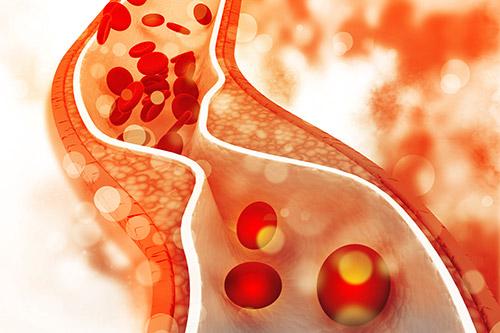Cholesterol Blood Test
Check your cholesterol levels quickly and easily with our Cholesterol Blood Test. Order online, collect your sample at home and post it to our NHS testing lab to get your cholesterol results in days.
Comes with our
- Results and doctor's report in 2 days or less
- Free, next-working day delivery
- Clearly explained results
Personalise your test
Cholesterol Blood Test base price:
£45.00Finger-prick blood collection
Total price:
£45.00
What you need to know about our Cholesterol Blood Test
High cholesterol levels cause no symptoms but are a major risk factor for heart disease, stroke and dementia. Checking your cholesterol levels regularly is one of the most important things you can to stay healthy in the long-term.
When should you take a cholesterol blood test?
You're never too young to take a cholesterol blood test. 1 in 200 of us have a genetic condition that causes high cholesterol from a young age.
But even without this, 1-in-4 adults under 40 have high cholesterol levels.
You should take a cholesterol blood test every year to track your levels over time. If you see your cholesterol levels creeping up little-by-little every year, it's a sign that you need to make changes to your lifestyle to stop your levels getting high.
Why should you take a cholesterol blood test?
Keeping your cholesterol levels low is one of the most important things you can do to stay healthy in the long-term. High cholesterol levels are a major risk factor for heart disease, stroke and dementia.
High cholesterol levels won't give you symptoms so taking a cholesterol blood test is the only way to know your levels and optimise your health.
What's the normal range for a cholesterol blood test?
Your cholesterol blood test includes a few biomakers collectively called your "lipid profile". The most important biomarkers are your triglycerides, LDL-cholesterol, non-HDL cholesterol and HDL-cholesterol. The normal ranges for your cholesterol blood test are:
| Low | Optimal | Normal | Borderline High | High | |
| Triglycerides (mmol/L) | < 1.13 | < 1.7 | 1.7 - 2.3 | > 2.3 | |
| LDL-cholesterol (mmol/L) | < 2 | < 3 | > 3 | ||
| non-HDL-cholesterol (mmol/L) | < 2.5 | < 3.9 | > 3.9 | ||
| HDL-cholesterol (mmol/L) | < 0.9 | 0.9 - 1.5 | > 1.5 |
What causes high cholesterol levels?
Your cholesterol levels are affected by your diet, weight, exercise, sleep, stress and your genes. All other things being equal, your choleserol levels will only tend to go up as you get older. You can't affect your genes but you can affect all the other factors. If you see your cholesterol levels creeping up over time, it's a sign that you need to make changes to your lifestyle to stop your levels getting high.
What's tested in the Cholesterol Blood Test?
Cholesterol Status
Your lipid profile - the levels of triglycerides and cholesterols in your blood - is an important risk factor for heart disease, stroke and dementia.
What's measured:
Learn more about the Cholesterol Blood Test
Your triglyceride levels are affected by what you've eaten recently so we recommend that you fast for 12 hours before taking the cholesterol blood test. Usually this means you should take the test first thing in the morning before breakfast.
We do not recommend using this test panel if you:
- are a child (17 years or under) without supervision from an adult
- are pregnant or breastfeeding (because these conditions can affect your cholesterol levels in the short-term)
If you're unsure if you should use this test panel, please contact us for advice.
Still have questions?
If you have any questions, we're here to help. Our customer service team is hands-down the best you'll ever deal with. They're smart, friendly, knowledgeable and will get back to you in a flash.
We've got the stats to back it all up.
When it comes to health, you want to know you’re in safe hands. We’ve got decades of experience, and we’ve got the stats to prove it.
20+
Years in healthcare
65,000+
5 star reviews

1 million+
Happy customers
2 million+

Our Privacy Promise
Your health is yours. It's personal. That's why we're committed to keeping your data safe and secure. Here's how we do it:
- We use anonymous packaging.
- Only the analyses you request are performed on your samples.
- Your GP won't see your results unless you want them to.
- Your data are safe from insurance companies.
See our Privacy Policy and our Terms of Service for more info.




-blood-test-box-mock.png&w=3840&q=75)



